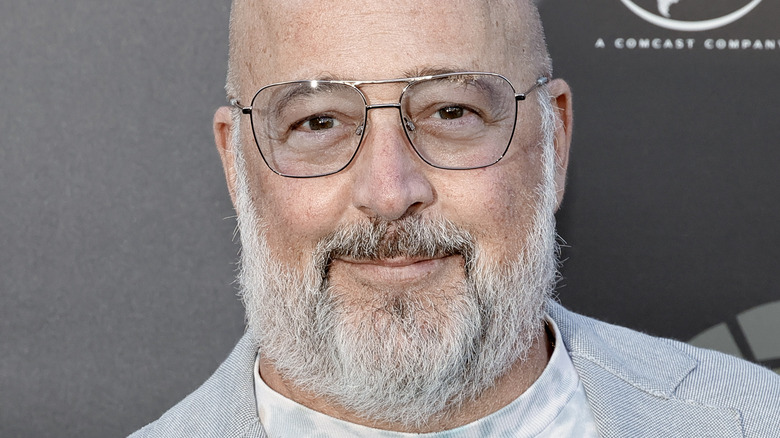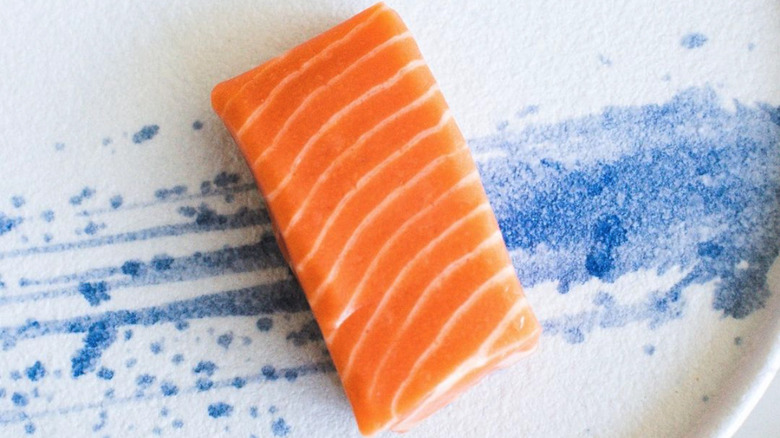Andrew Zimmern Is Impressed With This Cell-Based, Lab-Grown Salmon
Cell-based, lab-grown meat has proliferated since its invention a decade ago and has progressed far beyond sci-fi ideas of post-apocalyptic Spam. Also called cultured meat or cultivated meat, it's a no-kill method of food production, meaning no animals are killed in the process. Instead, their cells are taken via biopsy, then grown through a series of steps in a growth medium. The results have no set shape — cells don't grow into a T-bone steak — which is why most lab-grown products are burgers or chicken nuggets, explains Science Focus.
There are many potential benefits to lab-grown meat. For one, it could reduce the food industry's impact on the environment (food production accounts for one-third of all human-activity-related greenhouse gas emissions). As things now stand, grazing pastures occupy a lot of land, and grazing animals produce much of the world's methane.
Currently, Singapore is the only country where lab-grown meat can be sold, per The Guardian, but that may change with the FDA's recent approval of lab-grown meat. This was good news for the folks at Upside Foods, which earned the green light for its lab-produced chicken. The company can't sell its products just yet, though, as the USDA still needs to perform its checks. Still, this could pave the way for more cell-based meat companies to seek out the U.S. government's stamp of approval, increasing American consumers' consumption of this new type of animal protein.
It's not just land-based meat that can be cultured
But it's not just lab-grown chicken that American carnivores may soon be able to taste on a larger scale. Recently, celebrity chef Andrew Zimmern took to Instagram to share his approval of San Francisco-based Wildtype's contribution to the lab-grown meat landscape: salmon. Accompanying the post was a caption that read, "This is salmon. And it was delicious. ... It's cell based, reproduced originally from elements of salmon eggs. Lots of benefits and lots of challenges in producing food this way. But the future is now in many ways. @wildtypefoods Bravo! And thank you for blowing my mind."
Wildtype claims to make lab-grown, sushi-grade salmon and is on a mission to produce seafood that is free of microplastics and toxins while allowing the ocean's wildlife to recover from overfishing. In an interview with Forbes, co-founders Aryé Elfenbein and Justin Kolbeck said their product is "real salmon, grown directly from cells, with the same nutritional profile and taste as conventional salmon." Their ethos is influenced by the untenable state of the current model of the seafood industry. "There is a finite limit to the number of fish we can sustainably pull from our oceans and rivers," and farming fish doesn't fix the problems associated with seafood shortages, Kolbeck said. The company is hoping to launch after consultations with the government. For now, it seems that you need to be a celebrity chef to get your hands on some.

